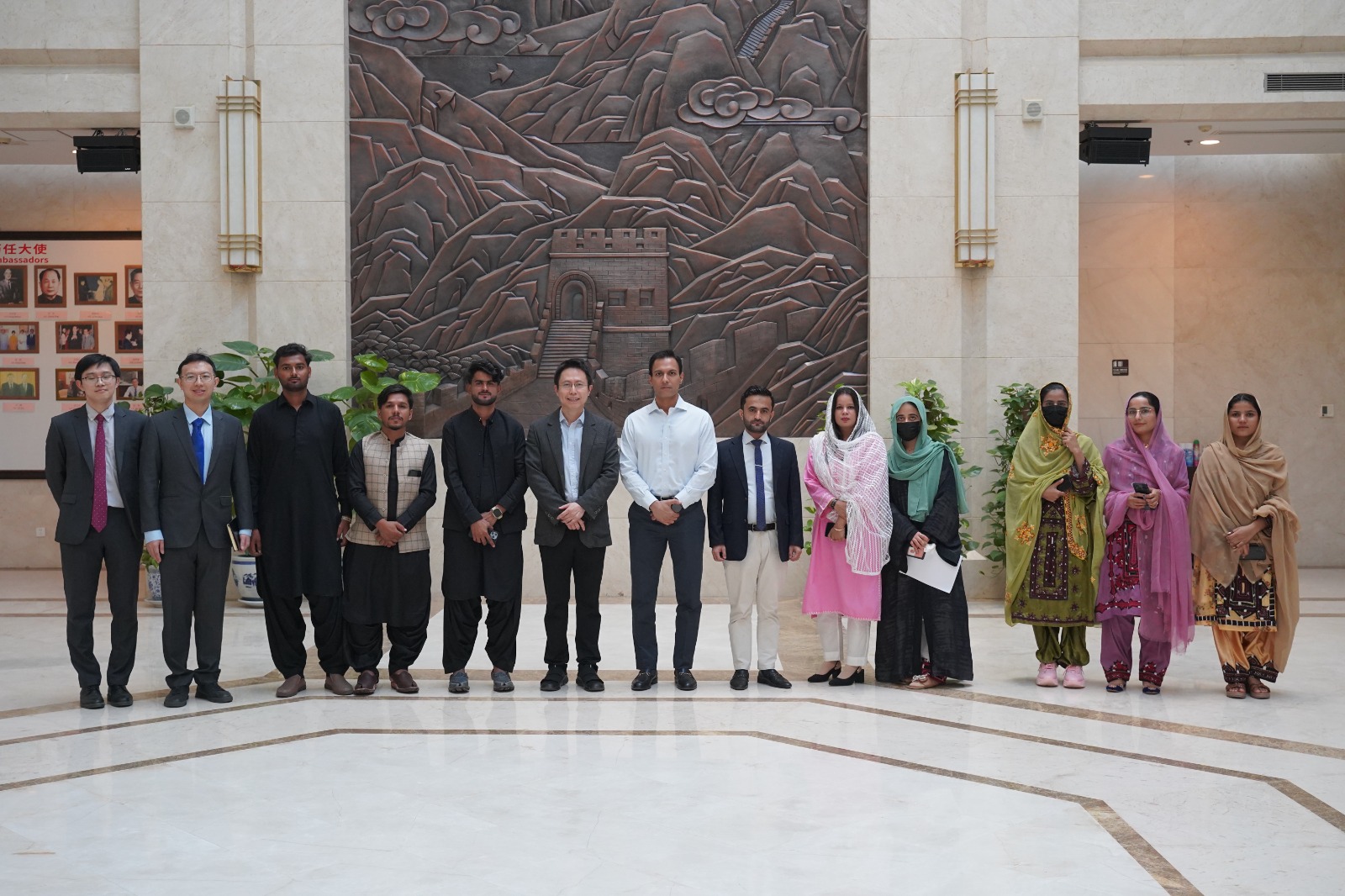Islamabad, Pakistan: The Pakistan-China Institute, in collaboration with the Embassy of the People’s Republic of China in Islamabad, successfully concluded the 4th Batch of the Balochistan Youth Engagement Program, featuring participants from the University of Gwadar.
This initiative aims to empower the youth of Balochistan by providing exposure to key stakeholders, fostering strategic dialogues, and promoting cultural immersion.
Over four days, the program offered students a unique opportunity to engage with diplomats, business leaders, and policymakers, deepening their understanding of the China-Pakistan Economic Corridor (CPEC) and its transformative role in Balochistan’s development. During their visit to the Chinese Embassy in Islamabad, the students were warmly received by Mr. Wang Shengjie, Political Counsellor, who delivered an inspiring speech highlighting the enduring Pakistan-China friendship. He underscored the importance of youth in strengthening bilateral ties, stating, “The youth are the custodians of the future. Programs like these are crucial in fostering people-to-people connections between our two nations.” The students were also introduced to the CPEC framework through a presentation and video by young diplomats, illustrating the initiative’s impact on regional connectivity and economic growth.
On the second day, the delegation visited the China Media Group office in Islamabad, where they explored initiatives aimed at fostering media collaboration and promoting cultural understanding between Pakistan and China. This was followed by a visit to the Ministry of Foreign Affairs, where the delegation was warmly welcomed by Ms. Mumtaz Zahra Baloch, Spokesperson for the Ministry of Foreign Affairs. During an in-depth briefing, Ms. Baloch shared valuable insights into Pakistan’s foreign policy priorities, particularly its strategic engagements with key regions, including China, the USA, the Middle East, Central Asia, and Africa. She emphasized that Pakistan’s relationship with China remains the cornerstone of its foreign policy, rooted in mutual trust and shared interests.
The delegation also had the honor of meeting Deputy Prime Minister and Federal Minister for Foreign Affairs Ishaq Dar. Additionally, they participated in a dialogue with the China Chamber of Commerce in Pakistan (CCCPK), where representatives of Chinese enterprises discussed ongoing projects and investment strategies. Mustafa Hyder Sayed, Executive Director of the Pakistan-China Institute, remarked, “This program exemplifies how diplomacy and development converge. By engaging with stakeholders, the youth of Balochistan can better understand the opportunities that CPEC and bilateral cooperation offer.” The students also visited the Institute of Strategic Studies Islamabad (ISSI) to explore the dynamics of policy and strategy.
On the third day, a major highlight was a lecture delivered by Ambassador Naghmana Hashmi, Former Pakistani Ambassador to China. She addressed the challenges posed by misinformation and emphasized the role of Chinese investments in Balochistan’s socio-economic upliftment. In her address, she stated, “Misinformation about Balochistan undermines the progress being made. It is imperative to showcase the tangible benefits that Chinese collaboration has brought to the region.”
Another significant session was led by Zou Yaodong, Chief Staff of the Administration Department of the China Overseas Port Holding Company (COPHC). He provided a detailed overview of Gwadar’s development under COPHC’s leadership, highlighting its strategic significance in the CPEC framework. “Gwadar is a symbol of hope and prosperity for Balochistan and Pakistan. COPHC is committed to making it a hub of regional connectivity and economic transformation,”he said.
The cultural aspect of the program included visits to iconic sites in Islamabad, such as the Pakistan Monument, Lok Virsa Museum, and Margalla Hills. These excursions deepened the students’ connection to Pakistan’s rich cultural heritage, complementing the program’s educational focus.

The 4th Batch of the Balochistan Youth Engagement Program continues to exemplify the Pakistan-China Institute’s dedication to nurturing future leaders and fostering regional connectivity. By equipping youth with knowledge, exposure, and critical insights, the program strengthens the foundation for a prosperous Balochistan and reinforces the enduring Pakistan-China partnership.
